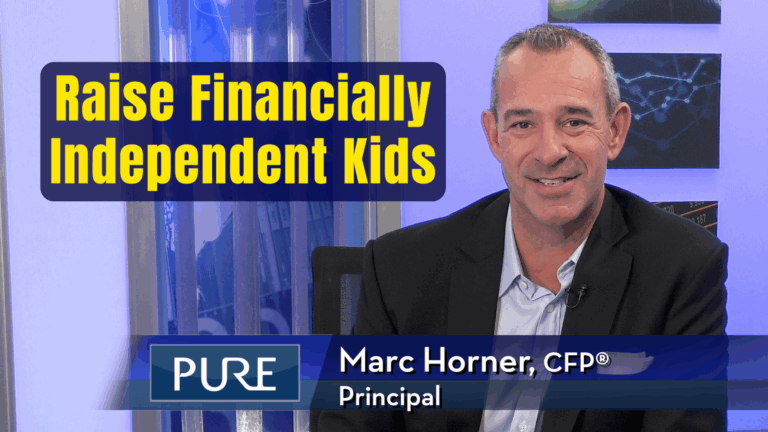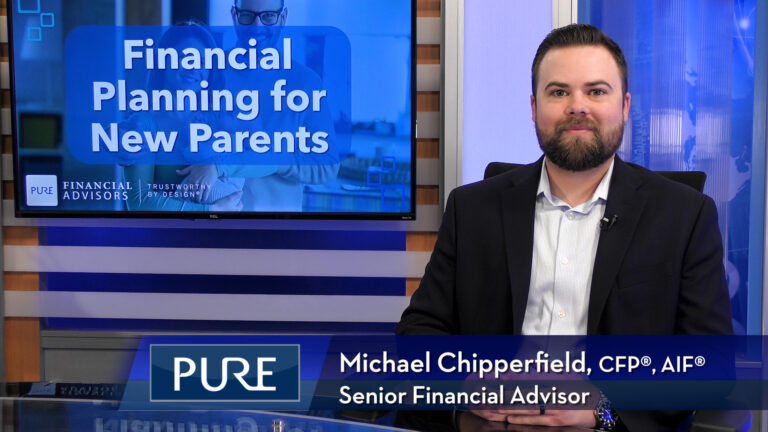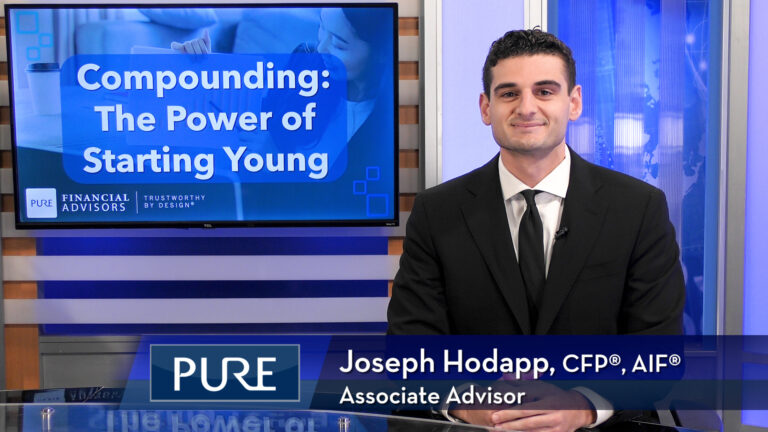Financial literacy is key to making informed decisions about money management. Pure’s Associate Advisor, Joe Schaaf, CFP®, AIF®, shares expert tips to enhance your financial skills in budgeting, retirement planning, and beyond.
Transcript
You might be wondering: What exactly is financial literacy? Financial literacy is the ability to understand and use financial knowledge to make informed decisions about money. Personal finance isn’t widely taught in schools here in the U.S., which leaves it as a blind spot in many people’s education.
According to the P-Fin Index, a study that measures knowledge and financial decision-making, financial literacy in the U.S. is below 50%1. Jumpstarting your financial literacy means recognizing that blind spot and empowering yourself to make informed financial decisions through education.
But it’s not just knowing, it’s doing! Establishing a budget. A budget helps you track your spending habits and gain a clear understanding of where your paycheck is going. Once you have a budget in place, you can identify areas for improvement and uncover opportunities to save and invest. For example, you can begin regularly contributing to various retirement savings accounts, setting the foundation for your retirement savings plan. Additionally, the money you save requires a consistent and disciplined investment strategy to help it grow and work toward achieving your retirement goals.
You might be asking yourself, “How do I recognize these opportunities? What retirement account is right for me? How do I invest?” That brings us to the next step of jumpstarting your financial literacy – education. Whether it’s through personal finance books, newsletters, or podcasts—Your Money, Your Wealth is a great one—learning equips you with the knowledge to spot opportunities and make informed personal financial decisions.
The key to financial literacy is action. It doesn’t matter whether it’s 10 minutes a day or an hour on the weekend—all that matters is that you take the time to learn more about your financial situation. Want help? Feel free to reach out and schedule your free financial assessment with one of our professionals here at Pure Financial Advisors.
1 World Economic Forum, Can you answer these 3 questions about your Finances? The Majority of US Adults Cannot, April 2024.
Subscribe to our YouTube channel.
IMPORTANT DISCLOSURES:
• Investment Advisory and Financial Planning Services are offered through Pure Financial Advisors, LLC, a Registered Investment Advisor.
• Pure Financial Advisors LLC does not offer tax or legal advice. Consult with your tax advisor or attorney regarding specific situations.
• Opinions expressed are subject to change without notice and are not intended as investment advice or to predict future performance.
• Investing involves risk including the potential loss of principal. No investment strategy can guarantee a profit or protect against loss in periods of declining values.
• All information is believed to be from reliable sources; however, we make no representation as to its completeness or accuracy.
• Intended for educational purposes only and are not intended as individualized advice or a guarantee that you will achieve a desired result. Before implementing any strategies discussed you should consult your tax and financial advisors.
CFP® – The CERTIFIED FINANCIAL PLANNER® certification is by the CFP Board of Standards, Inc. To attain the right to use the CFP® mark, an individual must satisfactorily fulfill education, experience and ethics requirements as well as pass a comprehensive exam. 30 hours of continuing education is required every 2 years to maintain the certification.
AIF® – Accredited Investment Fiduciary designation is administered by the Center for Fiduciary Studies fi360. To receive the AIF Designation, an individual must meet prerequisite criteria, complete a training program, and pass a comprehensive examination. Six hours of continuing education is required annually to maintain the designation.













